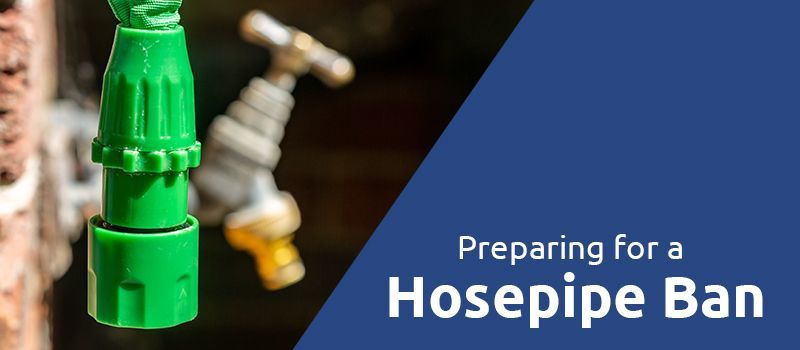Dry January is a big trend, and it does a world of good for people’s health. However, a dry March, April, May, June, July and August is no good for our environment.
After a record-breaking summer for temperatures, it seemed inevitable that we’d see a hosepipe ban put in place at some point.
The end of August saw a hosepipe ban in certain places in the UK as parts of the country were in drought. This caused several issues for people up and down the country. Parts of the UK are still in a hosepipe ban, despite rainfall in September. The ban is expected to last until next year, but it’s best to check with your local water authority, who will provide regular updates.
With another reported drought in October, we’ve put together the best ways you can prevent a hosepipe ban holding you back at home.
Water tanks
Water tanks provide an obvious and sensible option to keeping things like gardening and car cleaning going during a hosepipe ban.
They’re already used by several households, so this may not come as something new to you.
If you ensure your water tank is regularly topped up throughout the year, you’ll be able to utilise the water during a hosepipe ban.
There are plenty of options when it comes to purchasing a water tank as well. You can select a water tank that is best for your needs and suitable given the space you’ve got available.
Underground water tanks
Another popular option due to the tanks again being strong and durable.
To use an underground water tank, you’ll need space to fit the tank underground in your garden.
A major draw to using underground water tanks is space-saving. By burying the tank underground, you won’t have a tank taking up space and won’t have an eyesore of a tank in the middle of your garden.
You can also use an underground water tank as part of a rainwater harvesting system, something we’ll look at shortly.
When you’ve got an underground tank, you’ll need a pump for the tank. The pump will draw water out of the tank and will allow you to use the water around your garden. Our submersible sewage/wastewater pump have hose pipe connections. When you connect your garden hose pipe to the pump, it will draw water out of the tank, and you can use the water.
IBC Containers
The most popular option for a water tank is an IBC. One reason for this, is their size. They come in a range of sizes, but we predominantly sell 1000L IBCs. This makes them suitable for leaving outside in a garden without taking too much space in your garden.
Another reason IBCs are popular is their versatility and for being extremely cost-affective. You can use an IBC for storing a wide variety of liquids.
The cost of an IBC also makes them popular compared to other 1000L water containers. Their pricing makes them a viable option for both households and businesses.
For a residential property looking to store water to use during a hosepipe ban, an IBC is the way to go.
Rainwater harvesting
We briefly mentioned rainwater harvesting above, but rainwater harvesting is quickly becoming a real alternative for many houses.
Rainwater harvesting utilises the rainwater that falls throughout the year. The water is collected in a tank and then reused across the house. It can’t be used for drinking water, but can be used for washing machines or flushing toilets. Crucially, it can be used for hosepipes. This then means you can continue to use your hosepipe during a hosepipe ban.
We have a wide range of rainwater harvesting systems available to fit all budgets and requirements.
Here are a few examples of what we have to offer:
- 4400 Litres Economy Underground Rainwater Harvesting Garden System
- 5200 Litres Premium Underground Rainwater Harvesting Garden System
We specialise in rainwater harvesting systems, which means we can help with everything from planning your system to securing all the parts.
Connecting your hosepipe to an IBC or tank
If you want to use the water you’ve stored in your IBC for example, you’ll need a hose pipe adapter.
Our adapters allow you to connect a regular garden hose pipe to an IBC. This means you can then use the water in the IBC to water your plants or clean your car.
Using a pressure washer
Pressure washers, like our collection of Lavor’s, can be used to draw water out of tanks or IBCs. Once the pressure washer has the water, you’ll be able to use the water to wash your car or patio with the pressure washer.
- Lavor Smart Extra 135 Bar Cold-Water High-Pressure Washer
- Lavor Smart 120 Bar Cold-Water High-Pressure Washer
If you’d like to find out more about anything we have available, please contact our sales team on 01777 858009 or email sales@kingfisherdirect.co.uk.

